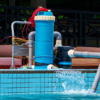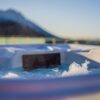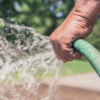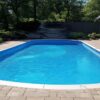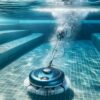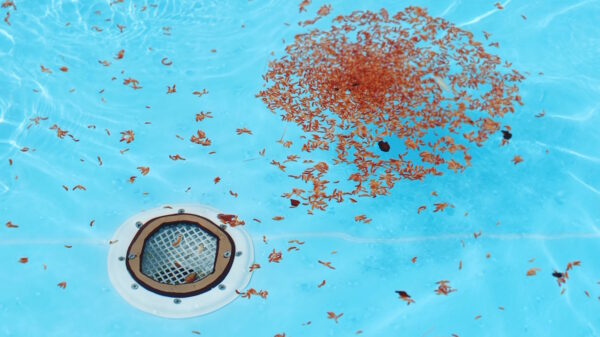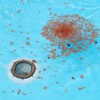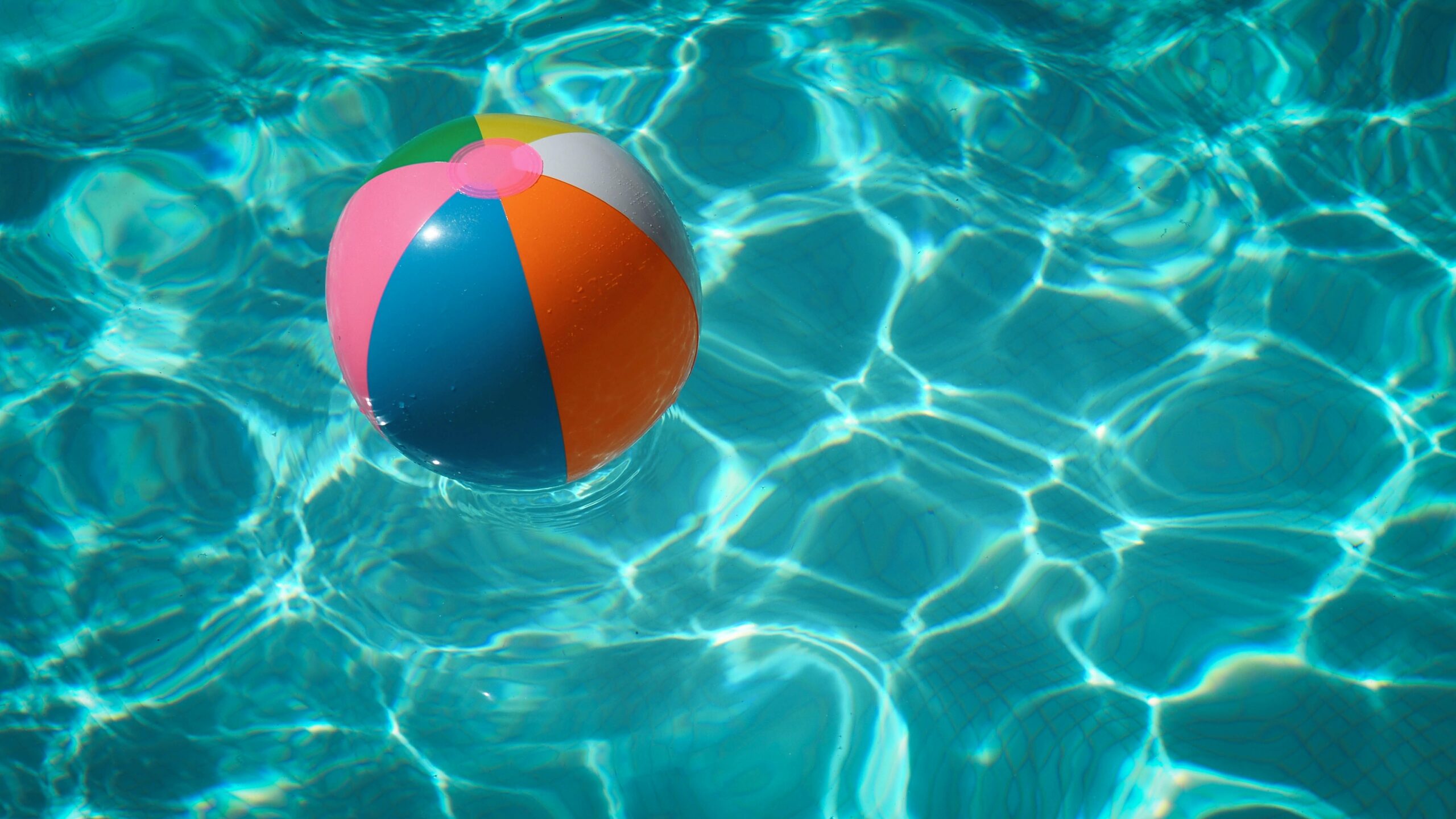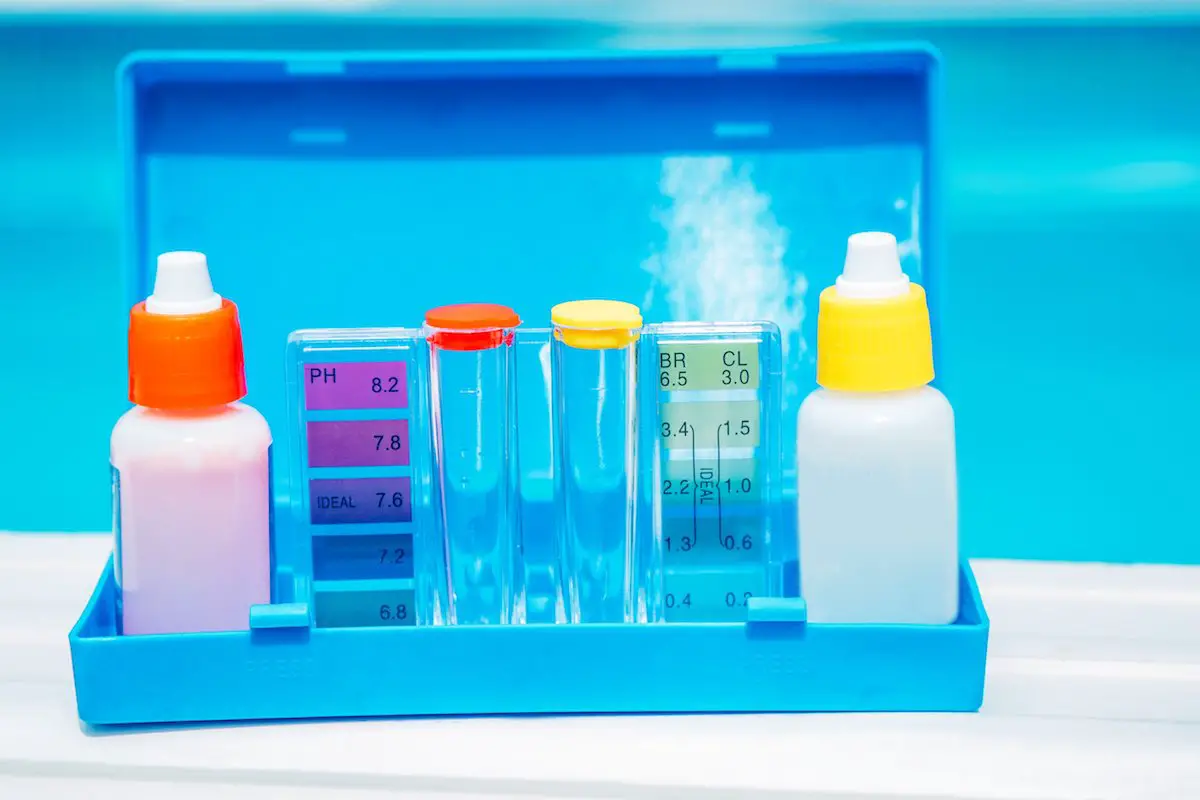How Did I Get Black Spots In My Pool?
There are many hours throughout the summer you spend cleaning your pool. You like to make sure it is looking great at all times. Then one morning you walk out and see these black splotches on the walls and sides of your pool. Naturally, you wonder what they are.
So, why are there black spots on the floor and walls of my pool? The black algae is a dirty, unsightly algae infestation that is tough to eliminate. These particular algae are like the algae that grow in shower or bathroom tile seams as well as in the grout.
There can be quite a few contributing factors to having black spots in your pool. These can include water temperature, free algae-producing phosphates in the pool, high levels of natural organic materials in the water, and perhaps even your automatic cleaner setting.
Keep reading to learn more about how to eliminate black spots in your pool.
What Causes Black Spots in Pool?
The scientific name for this alga is Cryptocoryne. Its photosynthesis consumes more energy and produces more waste than other water plants. It may require closer monitoring.
Cryptocoryne typically grows in dark-green to almost blue-green hues, although a black spot on the top of the growth has been given the name “Black Spot”.
This black spot of Cryptocoryne is not algae, but bacteria that can grow on plants that are stressed for one reason or another. The black spots are usually found in the top 6 inches of water where they get plenty of sunlight.
They can survive with very poor lighting conditions, but they will die if exposed to direct sunlight for too long. Trying to just remove the head of a black spot, algae will grow back in a few days as it has many layers that protect it from chlorine.
Black Spot is considered a slow-growing type of algae. Once it is established. These black spots are very difficult to get rid of. Spores may remain on the pool’s surfaces even after the pool has been drained and refilled with water.

What Causes Black Spot?
Poor chlorination or high phosphate levels are often the cause of black spots. Phosphates may be consumed by algae, which promotes their development.
Black Spot has been observed to survive even when pool water phosphorus content is low. The key is maintaining a consistent balance between clean and dirty water in the pool.”
Other factors can encourage the growth of Black Spot. These factors include foliage near the pool, consistently high pH, consistently low cholerine levels, old and worn pool interiors.
How Do I Get Rid Of Black Spot?
If you try to get rid of Black Spot, it may be difficult. It might be worth investing in professional staff to eliminate it once and for all, depending on how bad the algae bloom is.
If you’re not sure whether you have Black Spot, you may get your water tested, which can help you decide which treatment is ideal for you.
Keep The Equipment Clean
All things that enter your pool, including equipment, pool toys, floats, and even bathers, should be cleaned using a specialist cleaner.
What Do I Need to Use to Clean My Pool Accessories?
When you are dealing with black algae you want to thoroughly clean all accessories that have been in the pool. A lot of people prefer to use bleach water (¾ C. bleach per gallon of water) as a cleaner/disinfectant. Some prefer to use vinegar and water /distilled vinegar and water.
Spraying the toys on the tarp and hosing them off fully is a quick way to get all of the clutter out. Then put on your safety goggles so you don’t get bleach or vinegar in your eyes. Wipe down each piece of equipment with a rag and cleaning solution, paying close attention to cracks, nooks, and corners.
Make sure to clean each component completely using the scrub brush as needed for particularly dirty regions. Allow drying after washing thoroughly and using the old towel to help finish drying any areas that don’t dry quickly on their own.
Porous toys such as noodles and the net for pool games will need more time to dry and may need to be turned once to ensure they’re thoroughly dry.

Use A Brush
Using a brush with bristles, carefully clean all surfaces of your pool, including the difficult corners, and around fixtures. You’ll need to brush hard since you’ll have to destroy the Black Spot membrane and remove the spores to stop growth.
- If your pool is made of concrete, use a stainless steel brush.
- Use a nylon bristle brush if your pool is tiled.
If you’re brushing the walls and sides of your pool, do so at an angle to prevent black spots from forming. Brushing should be done for between 30 seconds and 1 minute every 3 months.
What Kind of Brush Do I Need to Use?
When you are cleaning your concrete pool you need to use a steel-bristled brush. On fiberglass or pools with liners, you need to brush with a nylon one. This will scrub off the regions where the black algae grow.
It will be simpler to get rid of the black algae if you scrub these areas with a brush. When cleaning, you’ll need to put out some effort. Black algae have tough and long roots that extend deep into the pool frame, as previously had been referred to.
Even after you’ve scraped and scrubbed the black algae away, the roots are likely to be trapped inside the pool walls. If you’re familiar with plant biology, you’ll know that if the roots are still alive, black algae can develop.
Keep The Filters Clean
If you have Black Spot in your pool, it’s very likely to show up in your filter as well. If your pool has sand or DE filter, run a backwash and rinse the filter several times. Remove the cartridge from any Cartridge Filter and thoroughly rinse it out.
Know Your Water Levels
Check that the water has enough chlorine for the size of your pool. Ensure that the pH levels are 7.4 to 7.6, as well as ensure that your alkalinity levels are 120 to 150 ppm.
Try Shocking The Pool
Next, you need to shock your pool, but you’ll need three times the normal amount of shock. Run your filter system for 24 hours after doing this at night and the black spot has been removed.
Go Over The Pool With The Brush Again
While your chlorine level is still high, brush your pool again once the shock has worn off. Some experts recommend continuing to brush for several days until you’re 100% confident that the Black Spot has vanished.
Try Shocking Your Pool One More Time
After a few days, repeat the process by shocking your pool. Do it again at the normal amount this time.

Clean & Vacuum The Pool
Try to remove any trash that may have arisen as a result of your brushing attempts, vacuum your pool. To eliminate any Black Spot remnants from your filter, repeat the process. It’s vital to remember that chlorine levels might stay elevated for up to two weeks.
Make Sure Black Spots Does Not Come Back
Working to prevent the black spot from developing in the first place is preferable to attempting to cure it. If you have a chlorinated pool, maintaining free chlorine levels above 1.5 parts per million is a good start in preventing algae growth.
It’s also critical to make sure your pool and spa have an equal quantity of chlorine. This may be done by keeping the water circulation steady.
You need to run your pump for 8 to 12 hours a day, every day of the year, with a pH of 7.4 – 7.6, and alkalinity levels of 120 – 150 ppm are advised at all times.
How Can Black Spots Affect Your Health?
If there are people in the water, they may become ill if they come into contact with black spots. Other harmful organisms can attach themselves to people swimming. One of these could be e. choli.
Swimmers will also have to stay out of the water while it is being treated. Large doses of chemicals such as pool shock and algae killer are required to run for several hours before the water chemistry returns to acceptable levels.
Swimmers should consider avoiding a pool with black algae if possible. Black Spots may attract insects and host harmful germs.
These germs or insects can make swimmers ill. If at all feasible, homeowners should take preventative actions such as regular pool brushing and maintaining appropriate chemicals to avoid black algal growth.
Conclusion
Nobody wants black algae in their pool. When you do find it in your pool, there is no need to freak out. The important thing to remember is that the best way to get rid of black spots is to prevent them from growing in the first place. Always make sure the maintenance of your pool is current and that you do not add too many chemicals to your pool.
This will help to prevent them from appearing on the sides of your pool or developing into black algae that lead to black spot growth. While it may be difficult, try to keep your pool clean and brush it regularly. This will help to prevent black spot growth.


